18 Jun2020
By Andrew Daire
This article originally appeared on the School of Education at Virginia Commonwealth University website and is reprinted with permission.
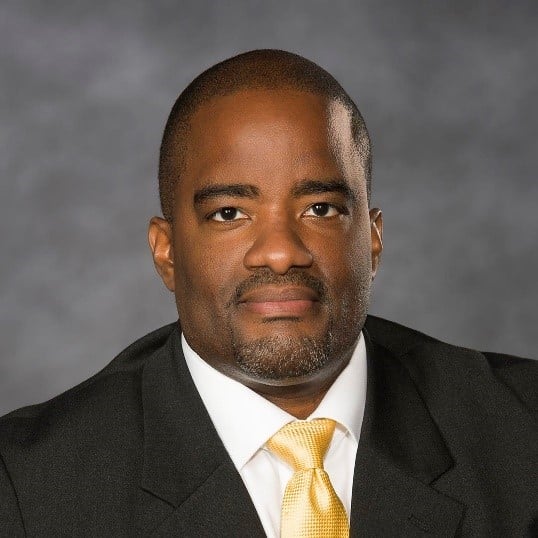 The VCU School of Education wishes to express our solidarity with the recent anti-racist protests and efforts to eradicate structural and systemic racism that began after the brutal murder of George Floyd in Minneapolis by police officers. His murder is not just a recent upsetting event, as so many other incidents come to mind: Amy Cooper in New York calling the police with false allegations regarding a black man; Ahmad Aubrey who was shot to death by Gregory and Travis McMichael; Breonna Taylor who was killed by police raiding her home; Eric Garner, and on and on and on. These incidents, and many more, are part of a pattern of ongoing, systemic, racist behavior against black people in this country since the beginning of slavery. Additionally, efforts to eradicate structural and systemic racism must continue. The grief that people of color are experiencing goes well beyond these recent events but is historical grief, exacerbated by these events.
The VCU School of Education wishes to express our solidarity with the recent anti-racist protests and efforts to eradicate structural and systemic racism that began after the brutal murder of George Floyd in Minneapolis by police officers. His murder is not just a recent upsetting event, as so many other incidents come to mind: Amy Cooper in New York calling the police with false allegations regarding a black man; Ahmad Aubrey who was shot to death by Gregory and Travis McMichael; Breonna Taylor who was killed by police raiding her home; Eric Garner, and on and on and on. These incidents, and many more, are part of a pattern of ongoing, systemic, racist behavior against black people in this country since the beginning of slavery. Additionally, efforts to eradicate structural and systemic racism must continue. The grief that people of color are experiencing goes well beyond these recent events but is historical grief, exacerbated by these events.
We will support this movement with not just words, but actions.
09 Jun2020
By Monika Williams Shealey
The following article is an excerpt from the Rowan University Division of Diversity, Equity and Inclusion blog and is reprinted with permission.
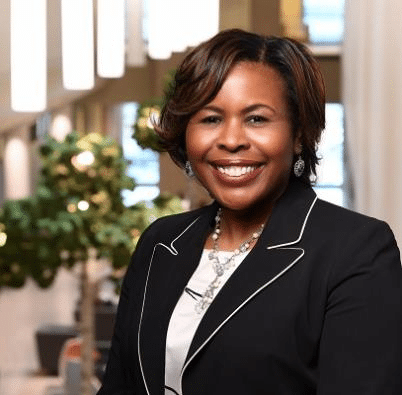 For the past 2 months our country has been in the grips of a pandemic that has challenged us in unimaginable ways and revealed our strength and courage in the face of fear. Unfortunately, during a time when we should be united against a common enemy, COVID-19, racism and xenophobia has become the cure for some who are inflicted with an irrational hatred and fear of people of color. Let’s not forget we were introduced to this pandemic as the “Chinese Virus” and the result was an onslaught of hate speech directed towards Asians and Asian Americans. We are not ok.
For the past 2 months our country has been in the grips of a pandemic that has challenged us in unimaginable ways and revealed our strength and courage in the face of fear. Unfortunately, during a time when we should be united against a common enemy, COVID-19, racism and xenophobia has become the cure for some who are inflicted with an irrational hatred and fear of people of color. Let’s not forget we were introduced to this pandemic as the “Chinese Virus” and the result was an onslaught of hate speech directed towards Asians and Asian Americans. We are not ok.
It is difficult for Black Americans to forget the legacy of the enslavement of Black bodies for economic consumption, Jim Crow, the civil rights movement and mass incarceration lives on. How does one talk about systemic racism and the oppression of people of color without acknowledging and understanding the current conditions that ensure our country remains divided by race. The election of a Black president was believed to be an indication of how far we’ve come as a country and we even heard that we were living in a post-racial country. Yet, the stories of police brutality, racial violence, and discrimination directed at Black Americans continued. We are not ok.
04 Jun2020
By AACTE
On behalf of the American Association of Colleges for Teacher Education (AACTE) Board of Directors, Chair Ann Larson issued the following statement today on race matters in America:
“AACTE leaders are compelled to voice our dissent of the recent, tragic events that have resulted in the horrendous murders of Black Americans. The unjust deaths of George Floyd, Ahmaud Arbery, Breonna Taylor, and many others represent incendiary racism that has deep, historic roots in our society. This profound moment in time has brought despair not only to the Black American community, but also to innumerable individuals, families, and communities representing legions of cultures and ethnicities throughout the country and the world. In the words of Dr. Martin Luther King Jr., ‘Injustice anywhere is a threat to justice everywhere. We are caught in an inescapable network of mutuality, tied in a single garment of destiny. Whatever affects one directly, affects all indirectly.’
It is imperative that educators embrace their responsibility as front line workers in dismantling structural racism within the American education system. Schools play a critical role in educating students about citizenship and societal values, which have long perpetuated the cycle of racial injustice. Educators must be change agents for reversing the miseducation of white people about black and brown people, and for promoting racial equity. There is a critical need for well-prepared, culturally responsive teachers who can educate and guide learners to value the lives of all human beings and hold others accountable in practicing justice, ensuring equitable access, promoting and assuring diversity, fostering inclusive policies and practices in all aspects of our society, and offering hope and optimism to all children.
02 Jun2020
By AACTE

On behalf of the American Association of Colleges for Teacher Education (AACTE), President and CEO Lynn M. Gangone issued the following statement today responding to the killing of George Floyd and systemic racism:
“AACTE acknowledges an insidious threat to the foundation of American democracy—institutional and structural racism. The construct of racism in our country is rooted in the historical, systemic abuse of power, based upon white supremist ideologies, and resulting in white privilege. Racism has long been entrenched in American institutions and policies that reinforce an unjust and disparate allocation of rights and resources to white people, while disallowing them to Black and other people of color—including our institutions of learning.
AACTE is outraged over the recent videos of Amy Cooper weaponizing the police against Chris Cooper in New York City’s Central Park, George Floyd’s murder by a Minneapolis police officer, and the hunting and killing of Ahmaud Aubery by men with ties to their local Georgia police department, as well as the murder of Breonna Taylor by police while sleeping in her home. The latter events represent only a few of the string of killings of Black citizens at the hands of white perpetrators and law enforcement. In each case, the victims were unarmed. In each case, the Black community was forced to mobilize, call out the racist crime, and demand justice that has yet to be realized.
01 Jun2020
By JTE Insider
Check out a recent JTE Insider podcast by the Journal of Teacher Education (JTE) editorial team. This blog is available to the public, and AACTE members have free access to the articles in the JTE online archives—just log in with your AACTE profile.
In this edition of JTE Insider, we are joined by Loraine McKay and Heather Manning from Griffith University (Australia). They are the authors of the article entitled “Do I Belong in the Profession? The Cost of Fitting In As a Preservice Teacher With a Passion for Social Justice” The article is published in the September/October 2019 issue of JTE.
Loraine McKay is a senior lecturer at Griffith University. She teaches into the Bachelor of Education program. She is currently first year coordinator in the Bachelor of Education program and professional experience individual case coordinator. McKay’s research interests align strongly with her passion for teaching. She was a classroom teacher for over 20 years in the primary education sector before leaving teaching to complete her doctoral studies. Her current research centers on developing teacher identity, efficacy, and resilience in preservice teachers. Loraine is particularly interested in preparing teachers to work in inclusive classrooms. She uses collage and photo elicitation to explore the affective dimension of teaching and engagement in learning.
01 Jun2020
AACTE DEI Video: A Focus on Gender Equity in Education
By Jerrica Thurman
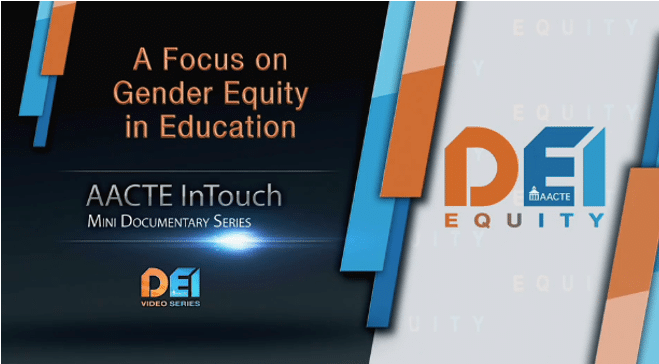
Ed Prep Matters features the “Revolutionizing Education” column to spotlight the many ways AACTE, member institutions, and partners are pioneering leading-edge research, models, strategies and programs that focus on the three core values outlined in the current AACTE strategic plan: Diversity, Equity, and Inclusion; Quality and Impact; and Inquiry and Innovation.
In this segment of the Diversity, Equity and Inclusion video series, AACTE members celebrate differences among individuals and promote gender and sexuality diversity as important aspects in preparing teachers to educate diverse student populations. Education research has found that societal stereotypes and biases of male and female roles are often reinforced in our schools and classrooms. The video participants encourage educators to address gender disparities in curriculum, teaching practices, and student engagement.
28 May2020
By Leslie T. Fenwick
Sixty-six years have passed since Brown v. Board of Education. The Brown decision came down in 1954; however, in the 16 dual system states, white resistance stalled school desegregation until the late1960s and early1970s. Since Brown, state and federal courts have steadily engaged litigation about education access, school funding, education equity, and opportunity to learn. In recent years, litigation has challenged school reform schemes such as vouchers, charters, the definition of highly qualified teachers, and the practice of disproportionately placing uncertified teachers-in-training as teachers-of-record in schools and classrooms serving urban poor students of color. These schemes—which are often viewed as new and innovative—have old roots in resistance to Brown[1].
Nearly 70 years of litigation about education access, school funding, education equity, and opportunity to learn has yielded two findings: Money matters. And judicial involvement is critical for ensuring that school funding is equitable. In fact, research has shown that court ordered school finance reform tends to increase state spending in lower-income school districts and decrease expenditure gaps between low and high income districts. A National Bureau of Economic Research study (2015)[2] found:
For children from low income families, increasing per-pupil spending yields large improvements in educational attainment, wages, family income, and reductions in the annual incidence of adult poverty. All of these effects are statistically significant … (p.39).
15 May2020
Revolutionizing Education
By Jenny Muñiz
Earlier this year, Colorado lawmakers proposed a bill that would task their state’s Department of Education and Department of Higher Education with devising strategies for recruiting more teachers of color. Almost half of Colorado students are students of color, while teachers of color comprise about 10 % of all teachers. This mismatch is even wider in Denver Public Schools, the largest district in the state, where 75 % of students are students of color but the share of teachers of color is a mere 27%.
Worse still, enrollment data from Colorado’s teacher preparation programs suggests these numbers are unlikely to inch up anytime soon: The state has not seen growth in the number of Black candidates enrolling in teacher programs in almost a decade, and its seen only a modest increase in the number of Latinx candidates. In the 2017–18 school year, only about 28 % of those enrolled in teacher preparation programs identified as people of color.
Research shows that teachers of color can boost the achievement of students of color—a needed skill in a state where these students face wide gaps in academic performance. However, it is increasingly clear that preparation programs will need to be more forward-thinking if they are going to usher more aspiring teachers of color into the profession.
04 May2020
AACTE DEI Video: Promoting Equal Access to Quality Teachers
By Jerrica Thurman
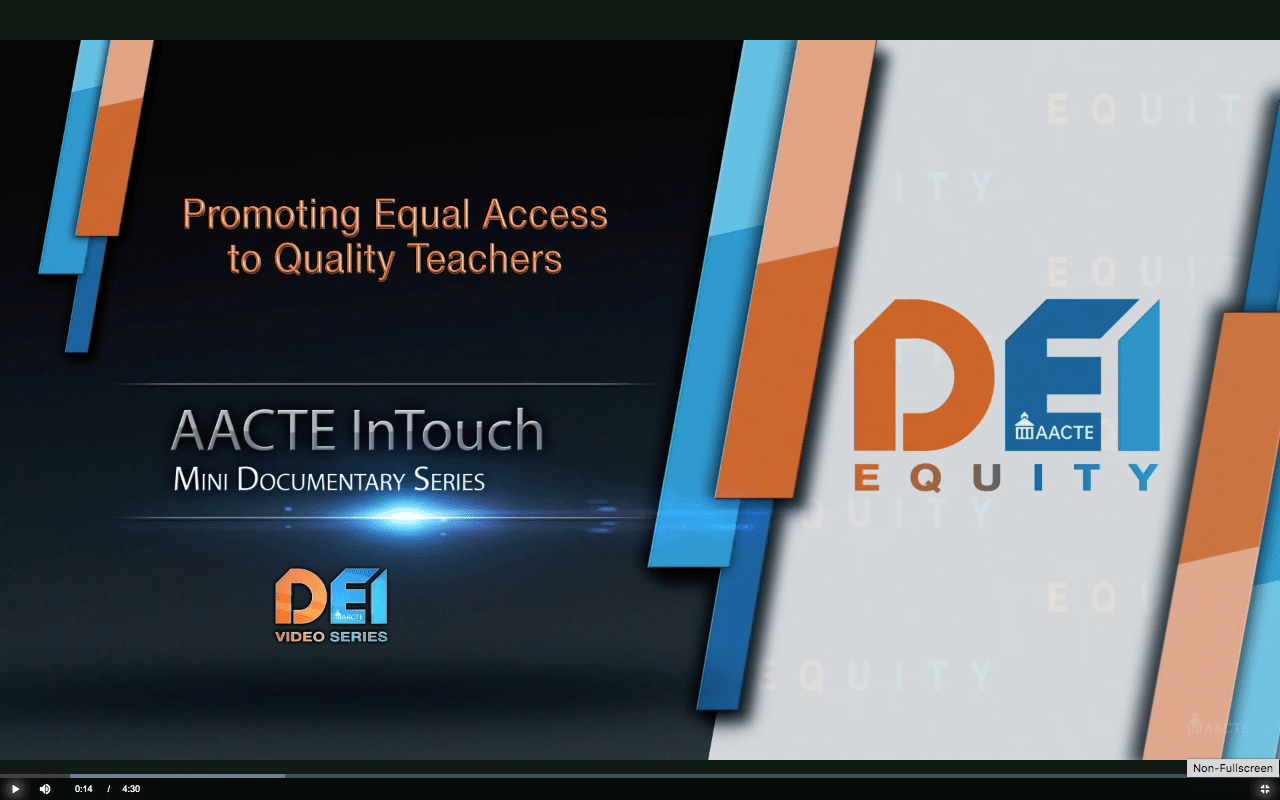
Ed Prep Matters features the “Revolutionizing Education” column to spotlight the many ways AACTE, member institutions, and partners are pioneering leading-edge research, models, strategies and programs that focus on the three core values outlined in the current AACTE strategic plan: Diversity, Equity, and Inclusion; Quality and Impact; and Inquiry and Innovation.
In celebration of National Teacher Appreciation Week, May 4-8, AACTE spotlights “Promoting Equal Access to Quality Teachers,” as the next segment in its Diversity, Equity and Inclusion video series, In this video, AACTE leaders discuss the important role effective teachers have in student learning and achievement, and advocate for poor communities to be given equal access to high quality educators. With the recent disruption in education caused by the coronavirus, several inequities regarding equal access to quality instruction has come to light as well as the important role teachers have in student learning. AACTE members are committed to producing high quality educators for the 21st century learner and strongly believe all students should have access to excellent teachers.
28 Apr2020
By Katrina Norfleet
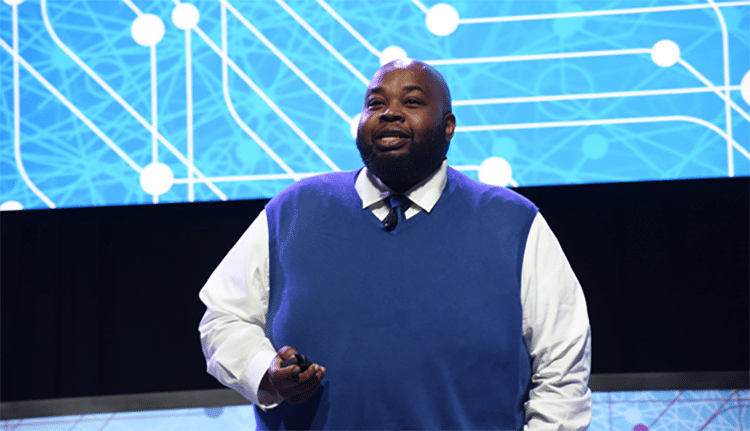
The AACTE 72nd Annual Meeting culminated with a Closing Session keynote address by 2019 National Teacher of the Year Rodney Robinson, a Richmond, Virginia, 18-year veteran educator who has developed programs to prevent students from entering the school-to-prison pipeline. Robinson shared how he uses culturally responsive curriculum and the whole child approach to learning in educating vulnerable students.
In talking about inequity, Robinson spoke about two different types: resource inequity and cultural inequity. During a tour of schools in Southwest Virginia, he noted the differences in resources. “It’s mind boggling. We went to some schools with 21st century buildings, state-of-the-art high-speed internet. Kids were using STEM boxes to plant agriculture, kids were using drones to to study space. And then we would go 30 miles down the road and buildings don’t even have AC, no high-speed internet; one school district didn’t even have text books.” He was challenged to advocate for these types of inequities between rural and urban schools.
24 Apr2020
By Renée A. Middleton
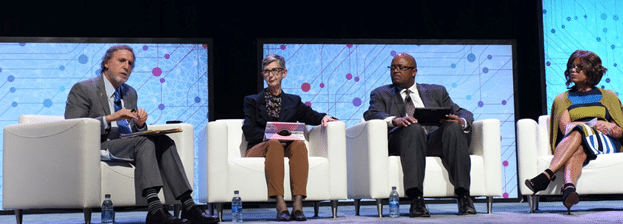
On Feb. 29, my colleagues and I had the honor of delivering the Deeper Dive presentation, “Combating Discrimination and Hatred Through Education,” at AACTE’s 72nd Annual Meeting in Atlanta. This experience was a wonderful opportunity to help deans of education and other educational leaders understand the important role that they play—not only in shaping curriculum, but also in making the world a better place.
Hate exists because people do not understand each other and want to “other-ize.” Well, the most effective way to eliminate hate is through education, and I believe the Deeper Dive presentation underscored that message.
I, along with Rick Ginsberg (University of Kansas), Marvin Lynn (Portland State University), Margaret Grogan (Chapman University), and David Machlis (Adelphi University). presented about the Holocaust—how it happened, why it happened, and how educators should approach this type of subject matter in schools. Connecting the past to the present is not always easy, but it is imperative to prepare students to be active and informed citizens.
21 Apr2020
AACTE DEI Video: The Importance of Equitable Disciplinary Actions in Schools
By Jerrica Thurman
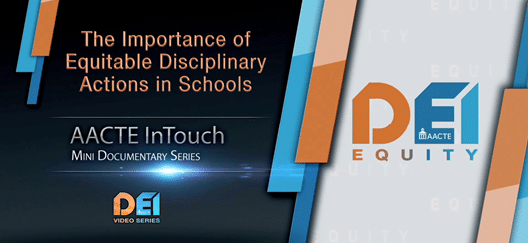
Ed Prep Matters features the “Revolutionizing Education” column to spotlight the many ways AACTE, member institutions, and partners are pioneering leading-edge research, models, strategies and programs that focus on the three core values outlined in the current AACTE strategic plan: Diversity, Equity, and Inclusion; Quality and Impact; and Inquiry and Innovation.
In this segment of the AACTE Diversity, Equity and Inclusion video series, AACTE members promote equitable disciplinary practices for teachers to use as restorative measures to build positive relationships with students. The video segment, The Importance of Equitable Disciplinary Actions in Schools, addresses the importance of eliminating prejudgments so educators can better understand students’ contexts and backgrounds and develop a new lens for addressing disruptive behaviors in schools.
16 Apr2020
By Maria Salazar and Bryant Jensen
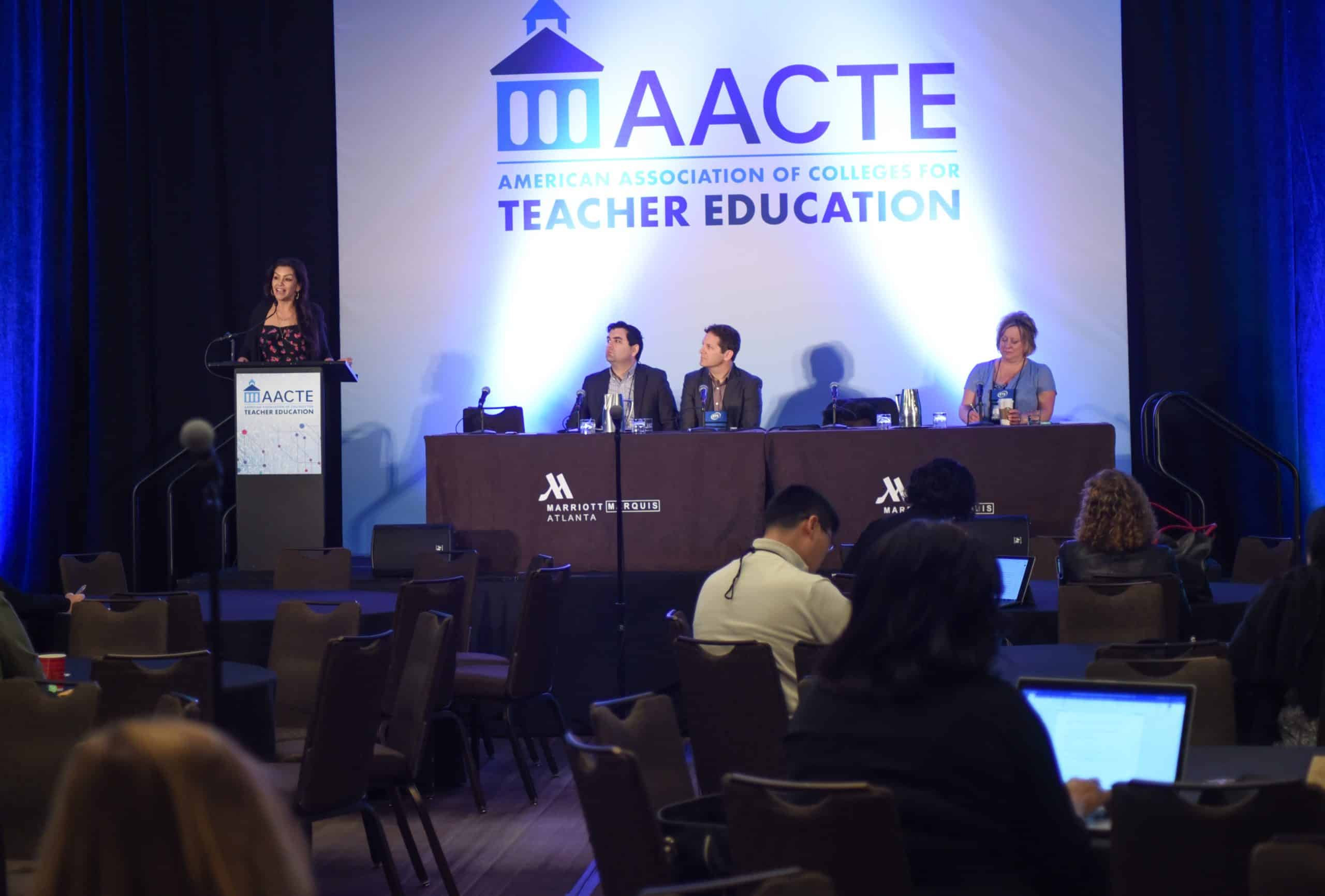
As presenters at the AACTE 2020 Annual Meeting Deeper Dive: Challenges of Immigration and Teacher Education, the authors offer a recap and reflection of the session.
“Quisieron enterrarnos, pero no sabían que éramos semillas” is a Mexican proverb translated as “They wanted to bury us, but they did not know that we were seeds.” This proverb captures the current experience of many immigrants and their children in U.S. society. Immigrants in the United States and around the world are being “buried” under policies and practices that violate their human rights, yet immigrant students and families remain incredibly resilient. Immigrant families draw on sociocultural assets to persevere through setbacks. These conditions have direct implications for teacher education in the U.S. and abroad.
Given the large numbers of immigrants of Latinx descent in the United States, we focus our commentary on Mexican and Mexican American communities. Two-thirds of the U.S. Latinx community is of Mexican origin, and one in seven of all U.S. students in elementary and secondary schools has a Mexican-born parent or grandparent (Jensen & Sawyer, 2013; Passel, 2011). The United States shares many of these immigrant children and youth with its neighbor to the south, México. Indeed, the fastest-growing group of “students we share” between our two countries are U.S.-born students of Mexican heritage living in Mexico and struggling to integrate into Mexican schools (Gándara, 2020).
15 Apr2020
By Carole Basile
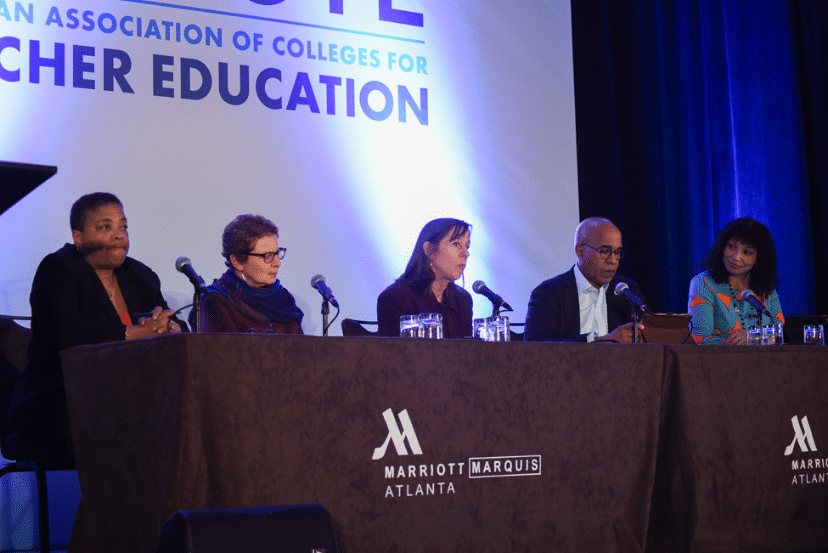
During the AACTE 2020 Annual Meeting in Atlanta, I had the pleasure of serving on the panel of the “Disruptive Deans” Deeper Dive Session along with three fellow deans. Our challenges are disrupting the one-teacher one-classroom model, closing the uneven admissions pathways between community colleges and 4-year institutions, breaking the traditional mindsets of hiring practices, and questioning the biases of traditional learning environments. These are no small tasks.
During the Disruptive Deans Deeper Dive session, the panel covered the following topics:
- “Building the next education workforce”—(I presented this topic.)
- “Designing a clear transfer model in the state of Oregon for community college transfer and increasing the number of teachers of color and bilingual students,” presented by Cecilia Monto, dean, Education and Humanities, Chemeketa Community College.
- “Hiring and retaining faculty of color,” presented by Don Pope-Davis, dean, College of Education and Human Ecology, The Ohio State University
- “Promoting understanding of the social justice imperative of educating teachers to educate all learners including those who are neuro-divergent,” presented by Kimberly White-Smith, dean, LaFetra College of Education, University of La Verne
Our moderator, (also a disruptor) Wanda J. Blanchett, dean, Rutgers University, has led a distinguished career promoting equity and inclusion for all.
09 Apr2020
By Linda Minor

Applications for the 2021 AACTE awards are now open. For most of the awards, programs and individuals can be either self-nominated or nominated by a third party. To submit your nomination, visit AACTE’s online submission site. Entries for the Outstanding Book Award are due May 15 and entries for the Outstanding Dissertation Award are due August 15. The due date for all other award submissions is October 9.
Winning entries will be decided by the AACTE standing committees and recognized formally at the 2021 Annual Meeting, February 26 – 28, in Seattle, Washington.
 The VCU School of Education wishes to express our solidarity with the recent anti-racist protests and efforts to eradicate structural and systemic racism that began after the brutal murder of George Floyd in Minneapolis by police officers. His murder is not just a recent upsetting event, as so many other incidents come to mind: Amy Cooper in New York calling the police with false allegations regarding a black man; Ahmad Aubrey who was shot to death by Gregory and Travis McMichael; Breonna Taylor who was killed by police raiding her home; Eric Garner, and on and on and on. These incidents, and many more, are part of a pattern of ongoing, systemic, racist behavior against black people in this country since the beginning of slavery. Additionally, efforts to eradicate structural and systemic racism must continue. The grief that people of color are experiencing goes well beyond these recent events but is historical grief, exacerbated by these events.
The VCU School of Education wishes to express our solidarity with the recent anti-racist protests and efforts to eradicate structural and systemic racism that began after the brutal murder of George Floyd in Minneapolis by police officers. His murder is not just a recent upsetting event, as so many other incidents come to mind: Amy Cooper in New York calling the police with false allegations regarding a black man; Ahmad Aubrey who was shot to death by Gregory and Travis McMichael; Breonna Taylor who was killed by police raiding her home; Eric Garner, and on and on and on. These incidents, and many more, are part of a pattern of ongoing, systemic, racist behavior against black people in this country since the beginning of slavery. Additionally, efforts to eradicate structural and systemic racism must continue. The grief that people of color are experiencing goes well beyond these recent events but is historical grief, exacerbated by these events.






 For the past 2 months our country has been in the grips of a pandemic that has challenged us in unimaginable ways and revealed our strength and courage in the face of fear. Unfortunately, during a time when we should be united against a common enemy, COVID-19,
For the past 2 months our country has been in the grips of a pandemic that has challenged us in unimaginable ways and revealed our strength and courage in the face of fear. Unfortunately, during a time when we should be united against a common enemy, COVID-19, 







